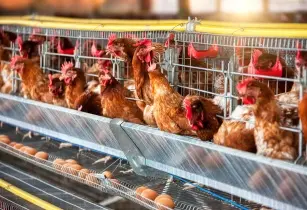The country director of BRAC Liberia, Rosy Choudhury, revealed that the organisation had been providing continued support to more than 200 poultry farmers through initiatives aimed at improving the livelihood and food security of farmers in the country
Liberia is considered to be one of the most poverty-stricken and war-torn countries of the world, with nearly a quarter of children under the age of five being malnourished and only a limited number of people having access to adequate sanitation facilities. Established in 2008, BRAC Liberia operates in 12 out of 15 counties of Liberia and is dedicated to supporting the underprivileged population of the country.
In 2013, the BRAC Poultry Hatchery was established, having an annual production capacity of 125,000 day old chicks (DOC) and 672 MT. It is known to be the first post-war breeder farm in Liberia which produces and supplies DOC and poultry layer feeds of high quality to ensure a profitable layer farm business and in turn meet the demand of farmers. So far, the poultry support programme has to a large extent improved the nutrition and income of Liberian households.
“We are currently supporting over 7,500 smallholder farmers across the country in vegetable, cassava, corn, livestock, and poultry production. The commercial farmers are 150 and we are giving them technical support to manage their farms,” said Choudhury in a report published by Front Page Africa. She further disclosed that BRAC’S new project would be supporting about 200,000 adolescent girls, youths, and women over the next five years through life skills teaching and economic empowerment. Yadav also praised the work of BRAC and emphasised the importance of providing training and enabling people to become self-reliant.
Moreover, the Minister of Agriculture, Jeanine Milly Cooper thanked BRAC for their contributions to Liberia and assured that they would support smallholder farmers to receive training across the country. Khaled Morshed, CEO of BRAC Liberia Microfinance also pointed out that by making finance accessible to Liberians, BRAC could ensure the improved wellbeing of the country’s population. Expansion to other regions within the country was also planned.




